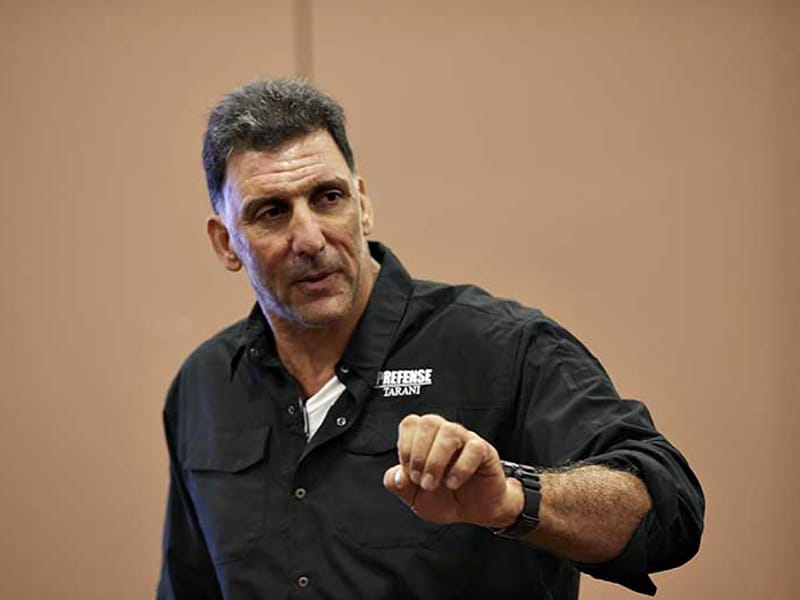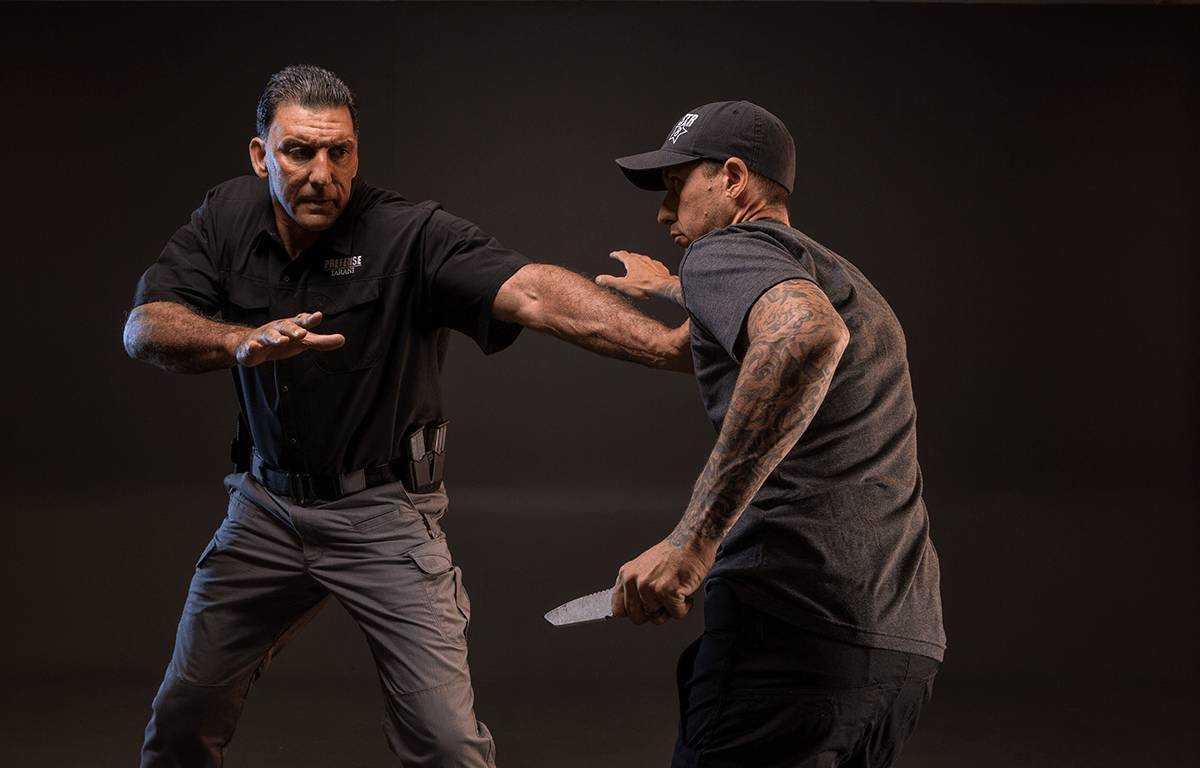As a subject matter expert in the fields of self-defense, protective services, and small arms, I have the privilege of working with a diverse range of individuals and organizations. Over the decades, I have come to understand that while knowledge is essential, it is wisdom that truly separates the successful from the mediocre.
Knowledge is a powerful tool. It is the accumulation of information that one acquires through study, experience, and observation. It is concrete, measurable, and objective. It can be transferred, tested, and quantified.

Knowledge vs. Wisdom — How are they different?
The terms ‘knowledge’ and ‘wisdom’ are often used interchangeably, but they are fundamentally different concepts. Knowledge is the accumulation of information and facts, while wisdom is the ability to apply that knowledge in a meaningful way. Knowledge can be taught and learned, but wisdom is gained through experience and reflection.
Knowledge is undoubtedly valuable, but it is limited in its usefulness. The possession of knowledge alone does not guarantee success, nor does it guarantee the ability to solve complex problems. Knowledge is merely the raw material that is transformed into wisdom through reflection and experience.
Wisdom Applied to Tactics and Self Defense
In the world of self-defense and personal safety, knowledge of techniques and tactics is important, but it is not the most critical factor. It is the wise application of that knowledge that is paramount. Knowing how to execute a technique or tactic is only part of the equation. The true test of wisdom is the ability to determine when and where to use that knowledge.
Referencing hard skills, knowledge is a necessary foundation. It is the understanding of techniques, tactics, and strategies that one can use to defend oneself or others from harm. For example, a martial artist who has spent years studying and training can leverage their knowledge to deliver effective strikes and submissions, but knowledge alone is not enough.
Wisdom, on the other hand, is the application of knowledge to real-world situations. It is the ability to take what you know and use it effectively in practical situations. Wisdom is subjective, nuanced, and contextual. It cannot be taught or tested in the same way that knowledge can and requires considerable time to acquire.
When it comes to self-defense and protection, wisdom is what separates the average person from the expert. It is the ability to read situations, assess threats, and respond accordingly. It is the difference between freezing in a crisis or taking effective action to protect yourself or others.
In the field of protective services, knowledge is essential, but not sufficient. A thorough understanding of the threat environment, the tactics and techniques employed by antagonists, and the vulnerabilities of potential targets is critical. However, it is the ability to analyze that information and make informed decisions that separates the consummate professional from the dilettante.
A protective services professional who possesses knowledge about the tactics and techniques employed by motivated assailants may be able to identify potential threats. However, if they lack the wisdom to analyze the situation and make informed decisions, they may not be able to prevent an attack.

Applications in the Business World
Similarly, in the business world, knowledge is important, but it is not the only factor that determines success. An entrepreneur with a wealth of knowledge about their industry may still fail if they lack the wisdom to make sound decisions and adapt to changing circumstances. In contrast, an entrepreneur who possesses less knowledge but has the wisdom to make good decisions and pivot when necessary is more likely to succeed.
In my work as a consultant, I often encounter individuals who possess an abundance of knowledge but lack the wisdom to apply it effectively. These folks may be highly educated and have impressive resumes, but they often struggle to make good decisions or solve complex problems. They may have all the pieces of the proverbial puzzle, but they lack the ability to put them together in a meaningful way.
On the other hand, I have also encountered those who possess less knowledge but have the wisdom to apply it effectively. These individuals may not care to have such impressive credentials or educational backgrounds, but they can make sound decisions and solve complex problems. They may not know everything, but they know what they need to know, and how to use that knowledge to achieve their objectives.
Recognize Limitations
Another important aspect of wisdom is the ability to recognize the limitations of one’s knowledge. Knowledge can be powerful, but it can also be detrimental if inappropriately applied. When you overestimate your knowledge or fail to recognize its limitations, you can make critical mistakes that may place yourself and others in harm’s way.
For example, someone who has trained in a martial art for a few months might feel confident in their abilities, but should they find themselves facing penitentiary-hardened street thugs, they may quickly realize that their knowledge is insufficient. In this situation, wisdom requires recognizing the limitations of their training or experience and taking appropriate action, such as fleeing or calling for help.
Wisdom in High-Stress Situations
Yet another key aspect of wisdom is the ability to remain calm and focused in high-stress situations. When faced with danger or extreme physical violence, your instincts can take over, as a huge panic or freeze. But wisdom allows you to remain clear-headed and make rational decisions, even when under extreme duress.
In the protection world, the ability to remain calm under pressure is essential. Keeping a cool head and a steady hand allows you to make decisions resulting in a positive outcome even in the most challenging circumstances.

Cultivate Wisdom
So how can you cultivate wisdom? There is no one-size-fits-all answer to this question, as wisdom is a layered and multifaceted trait. However, there are a few key practices that can help:
- Seek out experience: wisdom requires experience, and the more varied experiences you have, the wiser you become. It doesn’t mean that you need to place yourself in danger or seek out risky situations, but rather that you should be open to new experiences and training opportunities.
- Reflect on your experiences: simply having experiences isn’t enough. One must also reflect on them and learn from them. This means taking the time to analyze what went well and what didn’t, and using that information to inform your future decisions.
- Listen to others: wisdom is not just about what you know, but also about your ability to listen to others and learn from their perspectives. This means being open to feedback and criticism and applying it toward further self-development.
- Embrace uncertainty: wisdom requires an understanding that the world is complex and often unpredictable. We cannot always know what the future holds or what the best course of action might be when challenged with incomplete information. Embracing uncertainty means being comfortable with being uncomfortable.
- Practice mindfulness: it is said that mindfulness is “being fully present in the moment and aware of your thoughts, emotions, and surroundings.” This can help you to remain calm and focused in high-stress scenarios and to make better decisions.
One of the challenges of cultivating wisdom is that it is a lengthy process. Unlike knowledge, which can be learned and tested relatively quickly, wisdom requires ongoing practice and development. This means that you must be willing to make mistakes, learn from them, then continue to grow and evolve as you gain more experience.
Wisdom Has Its Benefits
An unsung benefit of cultivating wisdom is that it can help you avoid unnecessary conflict and violence. When you can read situations and assess threats, you can often defuse potentially dangerous situations before they escalate. This not only keeps you safe but also helps to create a more manageable environment.
Wisdom can help you make better decisions in all areas of your life. Whether faced with a difficult personal dilemma or a complex business problem the ability to think clearly and make wise decisions is invaluable. By cultivating wisdom, you can become a more effective problem-solver tactically or otherwise.
Wisdom can help you become more resilient in the face of adversity. When you can remain calm and focused in high-stress scenarios you are better equipped to handle setbacks and overcome obstacles. This can help you bounce back more quickly from setbacks and move forward with greater confidence and clarity.
Ultimately, the key to success is to have knowledge and wisdom.
Knowledge provides the foundation upon which wisdom is built. However, acquiring knowledge and wisdom is an ongoing process. It requires a willingness to learn and grow. This is especially true today where new technologies, threats, and opportunities are emerging all the time.
Another way to develop both knowledge and wisdom is through mentorship. Mentors can provide valuable guidance, support, and feedback, helping you to learn from their experiences and develop the wisdom to make good decisions. A mentor can also provide access to a network of contacts and resources, which can be invaluable in navigating complex challenges.
Knowledge and wisdom are two critical factors that determine success in fields ranging from self-defense and protective services to business and personal life. While knowledge is important, it is only the raw material that is transformed into wisdom through reflection and experience. Wisdom involves not only knowing how to perform a technique or tactic but also knowing when and where to use it.
To succeed in today’s rapidly changing world, it is essential to be a lifelong learner and to continuously seek out new knowledge and experiences. By developing both knowledge and wisdom, you can make sound decisions, solve complex problems, and better achieve your goals and objectives.


